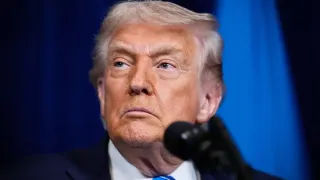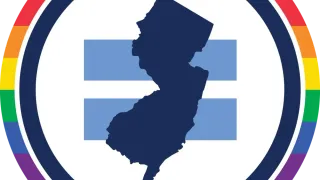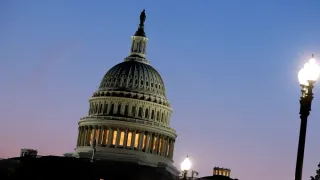January 12, 2014
Mayor Gets Piece of NYC's Mind on Pizza Etiquette
Winnie McCroy READ TIME: 15 MIN.
After a month spent mostly offline and blissfully unplugged, I've got plenty to share. From glitter-soaked nights in Rio to star-studded evenings on Broadway, it's been a joyful blur of celebration, connection, and unforgettable company. Here are just a few highlights.
Hot Men, Cool Drinks, and Carnival Chaos
There's something about Carnival in Brazil that grabs your spirit and simply doesn't let go.
This year, Eric and I set out on what we thought would be an intimate anniversary cruise. But as travel often does, it evolved into something much richer: A journey of love, laughter, and chosen family.
We invited our dear friend, the incomparable Rex Reed, to join us aboard the Crystal Serenity for a leg of its world cruise, from Rio de Janeiro to Las Palmas, Gran Canaria. For Rex, this wasn't just another voyage. After canceling a world cruise last year due to a fall that left him with a broken ankle, this was a return to something deeply missed. Travel takes a bit more coordination now, but after three decades of friendship, making it work was a given.
If you don't know Rex, imagine old-school glamour, razor-sharp wit, and film critic royalty. Beyond his legendary reviews, he's appeared on screen in "Myra Breckinridge," "Superman," and "Irreconcilable Differences," and was unforgettable on "The Gong Show."
We danced our way up the Brazilian coast, through Ilhéus, Salvador de Bahia, and Recife, each stop adding its own thread to Carnival's colorful tapestry. The itinerary was ambitious, even for us. But the heartbeat of it all – the rhythm that stayed with us – was Rio.
In Rio, we fully surrendered to Carnival's spirit. Music pulsed through our veins, sequins became second skin, and strangers felt like family on streets that throbbed with joy and unity. It wasn't just a celebration – it was a soul awakening.
Of course, we checked off the landmarks. Christ the Redeemer? Absolutely. Huge thanks to our friend Gaby Neves for connecting us with Edinilson Rocha, a guide who went above and beyond – especially helping Rex navigate Rio's trickier terrain with grace and care. Later, Eric and I took the cable cars up Sugarloaf Mountain for jaw-dropping views, while Rex wisely opted to relax at the base.
He did, however, rally for the Escadaria Selarón, the mosaic steps in Lapa. While he didn't climb them, he found the perfect perch to soak in the color, music, and scene, while Eric and I, still glittered from the night before, raced to the top, shirtless and laughing.
We made time for the beach, too. Copacabana and Ipanema delivered all their promises – endless caipirinhas, soccer, samba, and sun. Rex insisted on a fresh coconut, sipping it through a straw like a king on his throne.
We always seem to run into people we know, no matter where we are. One afternoon, we bumped into our longtime New York friend Sam Champion, WABC-TV's weather anchor, and his handsome partner, artist Rubem Robierb. They strolled past our table at Zazá Bistrô Tropical near Ipanema – proving once again the gay world is a village. We even learned our mutual friend Aleks Zestali – the blonde bombshell chef and designer I mentioned in my last column – was en route to stay with Sam.
The next day, our local friends Hale Sneider and his partner made sure we didn't just see Rio – they made sure we felt it. From beach to bloco, sunset to sunrise, they led us through an all-night Carnival party that pulsed with life. Amid thousands of shirtless men in sequins and feathers, we were swept into a glitter-soaked, joy-fueled experience we'll never forget. At one point, someone blew a handful of glitter into my chest hair. I woke up with a green smear across my sheets and just laughed, channeling my inner Tammy Faye.
Carnival in Rio is electric. From the precision of the samba parades to the chaos of the blocos, the city erupts in color, rhythm, and sheer ecstasy. But the real magic? It's in the people. Everyone – every age, every background, everybody – is welcomed into joy.
What made this journey extraordinary wasn't just the music or glitter (though there was plenty of both). It was seeing how each place and person translated joy in their own unique way. From Rio's dazzle to Salvador's soul to Recife's raw power, we were reminded that Carnival is a living, breathing celebration of identity and community.
The cruise itself was extensive – there's more to share. I'll save the full Crystal Serenity experience for another column, including the serendipitous friendships we made along the way. Pauline and Robin Newell, our delightful new friends from South West England, became part of our onboard family, bringing humor, warmth, and endless stories to every dinner table and dance floor.
And then there was São Vicente in Cape Verde. We visited the home of Grammy-winning singer Cesária Évora. Quiet. Moving. A moment of reverence. As I write this, her voice drifts through my speakers – Bésame Mucho-rich, haunting, unforgettable. Like Carnival itself, it lingers in the chest, long after the final note.
Reading 'Scattershot': Gratitude, Glamour, and One Incredible Life
I always try to bring a book with me to read on holiday. For this trip, it was my longtime friend Larry Chrysler's powerful memoir, "Scattershot: My Journey from the Projects to Paris to Rodeo Drive." I started the book on the plane ride from New York, and by the time I reached Las Palmas, Gran Canaria, Spain, I turned the last page. The book is one of those you just can't put down, I found myself lost in Larry's world, swept up in a story that's as bold, vivid, and inspiring as the man himself. His journey from the Minneapolis projects to the heights of the fashion world is not only extraordinary, it's deeply moving.
Eric and I have had the good fortune of knowing Larry for over 30 years, and he continues to evolve, surprise, and inspire, even at 93 years old. But this book? This book is something else. It's raw, witty, honest, and beautifully told – a true reflection of his spirit and resilience. The fact that he not only lived this incredible life but had the heart and talent to put it all on paper just blows me away.
I walked away from "Scattershot" feeling grateful – for Larry's friendship, for his fearless storytelling, and for the reminder that no matter where we begin, the journey is ours to shape.
And as I write this, it feels almost surreal. Larry and his husband Matthew are actually in Palm Springs this weekend with Eric, attending a Gamma Mu event. I've written in the past about the Gamma Mu Foundation, an organization we've been deeply involved with for over two decades. It's dedicated to providing financial support to nonprofits serving rural and underserved LGBTQ+ communities across the United States. So the book – and everything it represents – has been top of mind. It's a beautiful, full-circle moment.
Today, Larry lives in Beverly Hills with Matthew, and seeing how far he's come – how far they've both come – is nothing short of inspiring. Pick up this book. You'll be better for it.
A Chelsea Treasure, Refreshed: Elmo's Glow-Up Still Feels Like Home
The night after we arrived back in New York from our long holiday – still groggy with jet lag – I made a beeline to the newly-remodeled Elmo. As readers of my column know, Elmo has always been a neighborhood favorite – not just for the food, but for the staff who make it feel like home.
We were away during the official reopening, so I was eager to see the refresh for myself. And I'm happy to report the heart and soul of our beloved Chelsea watering hole is still very much intact.
The soaring new tile walls made a stunning first impression. I arrived at dusk, just as the light outside bathed them in a glow that turned the surfaces into near-mirrors – pure magic. And then there were the thoughtful little upgrades: Bar stools with a slight lip (a godsend for us seasoned regulars who appreciate the extra support after our second generously poured martini), and those chic cocktail table lamps now scattered throughout, casting a sexy, intimate vibe across the space.
What really made me smile, though, was the waitstaff – gracious as ever, and now dressed in sleek black. They seemed genuinely excited about the update. These "kids," as I lovingly call them, are some of the kindest people you'll ever meet.
And yes, word on the street is that the iconic Watermelon Martini will be making its return by the end of the month. Yummy!
Joel's 30th Hits the Right Note at the Townhouse
A few nights later, our sweet friend Joel Salazar celebrated his 30th birthday with a lively gathering at the Townhouse, in the cozy back section of the bar, just in front of the piano. In a lovely moment of spontaneity, Joel's friend Lenny dashed over to the piano, sat down at the keyboard, grabbed the microphone, and led the entire room in a passionate rendition of "Happy Birthday," filling the space with warmth and cheer. Even the bartenders, David and Eduardo, joined in.
I brought along new-kid-in-town Gregory Barretta, founder and owner of Dynamix, the global IT solutions company he launched back in 2012 in Fort Lauderdale when he was still in his 20s. Now in his 40s, Gregory has made the move from Miami and Amsterdam to finally settle in New York. The evening was grand, with dozens of Joel's friends turning out to celebrate. I managed to steal a quick birthday hug before he was happily engulfed by his crowd of friends and admirers.
A 'SMASH'-ing Night on Broadway
This week ended with the kind of theatrical magic only Broadway can deliver. On Thursday night, Eric and I had the pleasure of joining our dear friend Marc Levine, one of the producers of "SMASH," for a special pre-opening performance of the highly anticipated musical. Officially opening April 10th at the Imperial Theatre, "SMASH" is already shaping up to be one of the season's must-see shows.
We kicked things off with drinks and bites at Backstage Tavern on 46th, where Marc hosted friends and investors on the top floor, complete with a step-and-repeat, a photographer (our beloved Gustavo Monroy), great food, and even better company. We ran into so many familiar faces, including Shawn Frost, whom we hadn't seen since he and Kenny became proud papas to Jake and Jack, as well as fellow "SMASH" producers Chuck Leachman and Mickey Feigelson.
Inspired by the NBC series, the musical brings "Bombshell" – a fictional Broadway show about Marilyn Monroe – to life with all the drama, ambition, and sparkle that made the original a cult favorite. Marc Shaiman and Scott Wittman's score blends iconic songs with new gems, while Rick Elice and Bob Martin's book adds humor, heart, and drive.
Hearing "Let Me Be Your Star" and "Don't Forget Me" live was pure magic. Whether you're a longtime fan or new to the story, "SMASH" is a bold, heartfelt tribute to chasing a dream. I left the theater grateful – and so proud of Marc for helping bring this remarkable production to Broadway.
Sequins, Stars, and a Story That Still Matters
Eric and I had the privilege of attending the opening night of "Good Night, and Good Luck" on Broadway, thanks to our dear friend Scott Pask, the Tony Award-winning scenic designer behind the show's stunning visual world. The play is based on the historical film of the same name, co-directed by George Clooney in 2005. Set in the 1950s, it centers on the clash between legendary journalist Edward R. Murrow and the infamous U.S. Senator Joseph McCarthy, of anti-Communist HUAC fame.
Opening night was black-tie – and, hands down, one of the most chic and unforgettable evenings I can remember. The after-party at the New York Public Library only added to the sense of occasion. Before the show, Eric, Scott, his partner Will, and I met at the Michelangelo Hotel – just a stone's throw from the Winter Garden Theatre – for a pre-show toast. We were all coming from different parts of town, so meeting somewhere central made perfect sense. The bar was quiet, save for a few groups dressed in black and white – clearly fellow theatergoers heading to the same performance.
The moment we entered the theater, the energy was electric. Thanks to Scott, we had the surreal treat of entering through the stage door, which immediately elevated the entire evening. The house was buzzing with excitement and star power – Broadway insiders and celebrities milling about, including Cindy Crawford, Gayle King, Hugh Jackman, Uma Thurman, and Jennifer Lopez, to name just a few.
Our orchestra seats gave us the perfect vantage point. From the moment the curtain rose, I was transported. The show opens with singer Georgia Heers performing "When I Fall in Love" behind a shimmering gold curtain. The moment was both romantic and melancholic, and left me choked up and thrilled all at once.
Scott's stage design was, without question, the showstopper of the evening. It was a masterclass in restraint and atmosphere – a moody, monochromatic newsroom pulsing with urgency and quiet integrity. It wasn't just a set; it was a time capsule. The design evoked a golden era in journalism: Clacking typewriters, curling cigarette smoke, and reporters doggedly chasing the truth. Thoughtful pops of color in the interior finishes and costumes set this production apart from the film – and, in many ways, made it feel even more immediate and relevant.
This production isn't just a historical drama – it's a love letter to journalism. To the kind of journalism that once defined an era, and still resonates today. "Good Night, and Good Luck" doesn't just honor journalism. It honors the newsroom. And for anyone who understands that world, it rings powerfully true.
The after-party at the New York Public Library was nothing short of spectacular. The iconic space was transformed into a glamorous, multi-level celebration that exuded mid-century elegance. Guests arrived in sleek black-and-white evening wear, echoing the visual themes of the play.
A live jazz ensemble filled the rooms with a timeless soundtrack as guests sipped Champagne and martinis, and enjoyed an array of upscale bites – from lobster rolls and mini cheeseburger sliders to cherry tomato tartines. The celebration flowed across three grand floors of the library, with each level offering its own unique energy. Even the stair landings were transformed into cozy seating areas where friends old and new could gather and connect.
In addition to the familiar names I mentioned earlier, Eric and I had the chance to meet Lawrence O'Donnell. Eric has long admired "The Last Word with Lawrence O'Donnell," so having the opportunity to say hello and introduce ourselves added another surreal highlight to an already extraordinary night.
I also had the unexpected pleasure of finally meeting Jordan Roth face to face – someone I've long admired. Jordan is the true embodiment of theatrical style and avant-garde elegance. No one has redefined red carpet fashion with more unapologetic self-expression and glamour. Seeing him in person – every bit as magnetic and visionary as I'd imagined – was a personal highlight.
The after-party wasn't just a celebration of a Broadway debut; it was a gathering of artists, journalists, and cultural icons. A perfect extension of the show itself: A tribute to truth-tellers, storytellers, and the enduring power of the press.
After weeks filled with vibrant moments and meaningful reunions, I'm easing back into the rhythm of daily life – with a full heart, a deeper appreciation for community, and just a touch of glitter still clinging to my suitcase.






